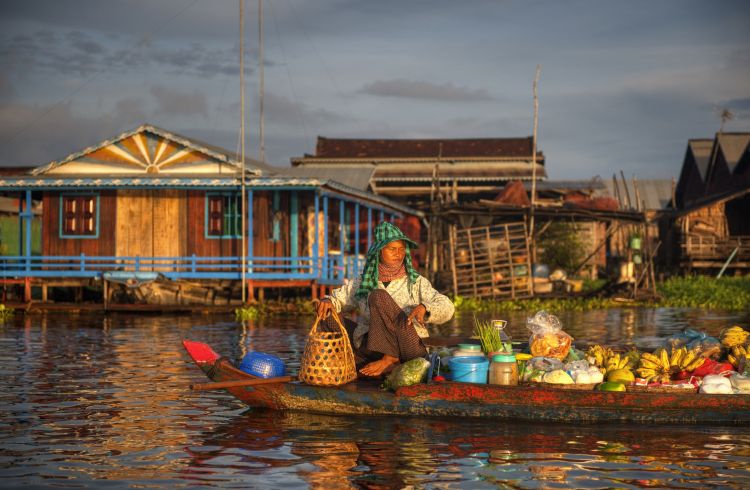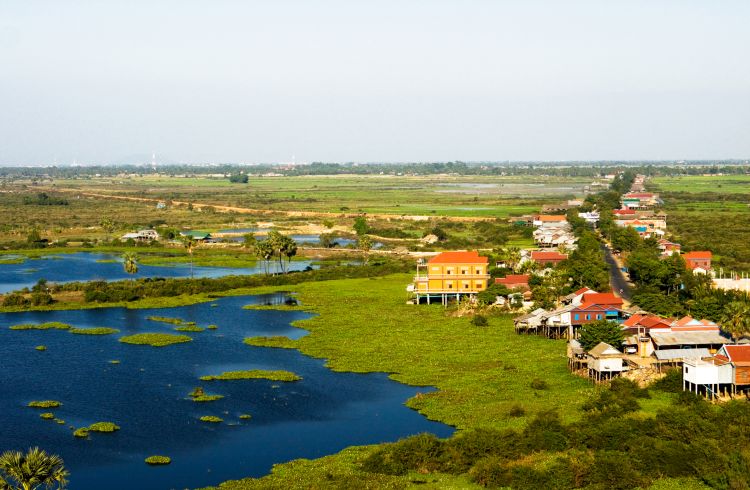How to Stay Healthy While Traveling in Cambodia
What vaccinations do you need? Can you drink the tap water? Stay healthy while you travel with these tips to avoid health hazards and disease in Cambodia.
 Photo © Getty Images/Rawpixel
Photo © Getty Images/Rawpixel
Life in the tropics can be pretty great, as long as you can navigate your way between the mosquitoes and the less-than-desirable medical system. After four years of living in Cambodia, our expert expat, Cassie, gives us her lowdown on how to stay healthy.
- Vaccinations for Cambodia
- Medical Treatment in Cambodia
- Medications
- Food and Water Borne Diseases
- Mosquito-Borne Diseases
- Infections
- Parasites
- Heat-related Conditions
Vaccinations for Cambodia
No immunizations are required for Cambodia, but it’s worth considering the recommended vaccinations such as Hepatitis A, Hepatitis B, and Typhoid. Tetanus is another important one especially if you plan on going to an island or trekking in the jungle where you might be a few days travel from a hospital.
If you are hiking in remote areas, spending time with animals, young children, or working in healthcare, then a rabies vaccination is a good idea. If you plan to spend extended amounts of time in rural locations you may also want to consider being vaccinated for Japanese Encephalitis, but there is a minimal risk for most visitors.
Medical treatment in Cambodia
Medical facilities in Cambodia have improved in recent years, but it’s still lagging behind Thailand and Vietnam. Doctors have been known to run scams to fleece unwitting tourists out of money using fake blood tests and overpriced antibiotics that aren't necessary. There are several Western-trained doctors’ surgeries in the major cities and at Sonja Kill Hospital in Kampot.
Given Cambodia’s basic health system, it’s important to have travel insurance. In the case of medical evacuations, people get flown to Bangkok or are transported to Ho Chi Minh City by ambulance. If you are experiencing a major medical emergency, it’s best to contact your travel insurance Emergency Assistance team.
Scuba divers should note, there are no hyperbaric chambers available in Cambodia – the nearest ones are in Thailand.
Medications
Although Cambodia’s pharmacies appear well stocked, they can carry a lot of fake medications and sometimes give the wrong medication, so it’s always worth researching the brand name before you accept anything. Abusing medications can also be incredibly dangerous, even deadly, especially when mixed with alcohol, so always be careful.
Food and water-borne diseases
for drinking and brushing your teeth.
One of the most common ways of getting sick is eating street food and ill-prepared meals. Avoid fresh fruit and salad vegetables unless they have been washed in safe water or peeled. However, sampling the local street food is one of the best things about traveling, and Cambodia is no exception. If you are worried about eating pre-cooked dishes, ask for food to be freshly cooked in front of you and avoid any fresh herbs or leaves.
Most bars, restaurants, and cafes use ice that is made in factories from safe drinking water, and it is cubed and tube-shaped. Avoid ice chipped from big blocks.
If you do get sick, then drink some electrolytes to rehydrate and keep a supply of Pepto Bismol or Imodium on hand, just in case you get desperate and you need to travel. However, where possible, it’s best to let these tummy upsets run their course.
Mosquito-borne diseases
During the monsoon season, on the islands, in the jungle, and in rural areas especially, there are a lot of pesky mosquitoes that spread diseases such as malaria and dengue. The best way to avoid being bitten is to use mosquito spray and coils and to cover your arms and legs as much as possible. Sleep under a mosquito net or a fan to help keep them away.
Infections
One of the worst things about traveling in the tropics is how quickly and easily infection can spread. One moment you have a mosquito bite that you scratched, the next minute, you’re in a hospital. If you have an open wound, avoid swimming in unclean water, and keep the wound clean and dry. Warm temperatures help bacteria to grow, making it infinitely worse. At the first sign of infection, get to a pharmacy where they will clean it and sell you antibiotic cream.
Parasites
Another issue facing visitors, especially long-term ones, is parasites. Some are transmitted via contaminated food and water, and others through unsanitary conditions. If you are worried, you can get tested and parasites can be cheaply treated with anti-parasitic pills starting at less than US$1/dose at the pharmacy.
Heat-related conditions
Cambodia is a hot and humid country, so it’s important to drink a lot of water and stay hydrated as dehydration is the main cause of illness amongst most travelers. When out sightseeing, make sure you have sunscreen and a hat, and wear loose clothing that protects you from the sun.
Bonus tip: Wear good shoes, especially when cycling, riding mopeds, or visiting the temples at Angkor Wat.
Related articles
Simple and flexible travel insurance
You can buy at home or while traveling, and claim online from anywhere in the world. With 150+ adventure activities covered and 24/7 emergency assistance.
Get a quote

No Comments